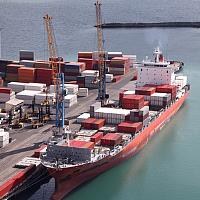(BRUSSELS) – Following yesterday’s State of the Union speech, the EU Commission unveiled Thursday a package of trade and investment proposals including to open talks for trade deals with Australia and New Zealand.
The proposals include the creation of a European screening framework to ensure that foreign direct investment does not compromise the EU’s strategic interests when it comes to security and public order.
And in a move which it say will make the EU’s trade policy the most transparent and inclusive in the world, the Commission announced the setting up of an Advisory Group on EU trade agreements. It added that it would publish, as of today, any new proposal for negotiating mandates.
Finally, the proposals include a draft mandate to start negotiations towards the creation of a multilateral investment court.
The key elements of the package are:
- A proposal for a European framework to screen foreign direct investment. This, it say, will ensure foreign investment remains a major source of growth in the EU while protecting the EU’s essential interests. The legislative proposal is accompanied by a set of further measures that take immediate effect. These are detailed in a dedicated Communication outlining the strategic need for such a screening.
- Recommendations to the Council to open negotiations for trade agreements with Australia and New Zealand. These agreements would build on recent agreements with Canada, Vietnam, Singapore as well as Japan among others.
- A recommendation to the Council to open negotiations to establish a multilateral court for the settlement of investment disputes. This reinforces moves towards a more transparent, coherent and fair approach to deal with company complaints under investment protection agreements.
- Unprecedented transparency: With the publication of the draft mandates for bilateral trade agreements with Australia and New Zealand, and for a multilateral agreement on investment dispute settlement, the Commission says it will publish as of now all its recommendations for negotiating directives for trade agreements (known as negotiating mandates). When they are submitted to the European Parliament and the Council, those documents will in parallel be sent automatically to all national Parliaments and will be made available to the general public. This, it says, should allow for inclusive debate on planned agreements from the start. The Commission is asking EU Member States to ensure the involvement of the relevant national and regional stakeholders in trade talks at the earliest possible stage.
- The creation of an Advisory Group on EU trade agreements. The group will allow the Commission to engage with civil society and gather more easily different perspectives and insights from a wide and balanced group of stakeholders, ranging from trade unions, employers’ organisations, consumer groups and other non-governmental organisations.
Details of the new trade package are outlined in a Communication “A Progressive Trade Policy to Harness Globalisation”. This is accompanied by a progress report on the EU trade policy strategy “Trade for All” looking at its implementation two years on.
More than 30 million jobs are supported by European exports to the rest of the world. 90% of future global growth will happen outside Europe’s borders. A globally integrated economy therefore continues to benefit both large and small or medium-sized European companies, as well as European citizens, workers and consumers.
Further Information
Communication: A balanced and progressive trade policy to harness globalisation
‘Trade for all’ implementation report
Press release on investment screening
Factsheet on investment screening
Draft mandate for negotiations with Australia
Draft mandate for negotiations with New Zealand
Factsheet on future negotiations with Australia and New Zealand
Factsheet on future negotiations for a multilateral investment court



